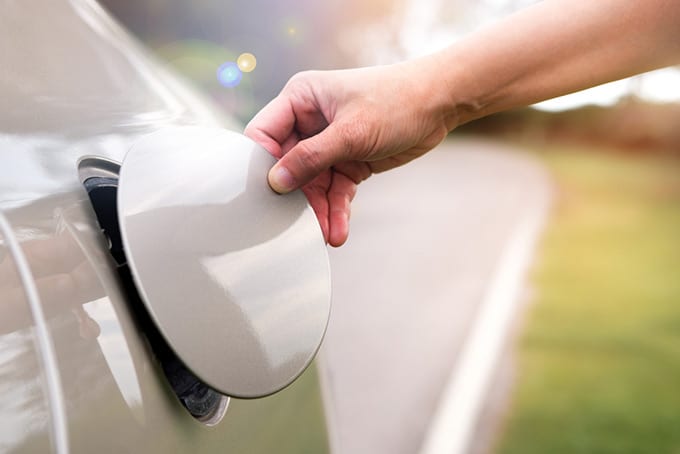
When you don’t make a lot of money, credit card spending can quickly turn into a never-ending — and costly — cycle: You don’t have money, so you have to use your credit card to cover gaps between paychecks or unexpected expenses. As a result, your balance goes up, with interest.
Of course, because you don’t have money, you can’t afford to pay more than the minimum payment on your credit card. As a result, interest stacks up, your outstanding balance gets bigger, and your minimum payments are hardly making a dent.
Credit card debt is hard for everyone do deal with — but if you’re already struggling to make ends meet, it can be especially difficult. And if you’re living paycheck-to-paycheck, on a fixed income, or working at or near minimum wage, it can seem downright impossible.
But where there’s a will, there’s a way — and at American Credit Foundation, we truly believe paying off debt is an accomplish-able goal, no matter how big or small your paycheck. It will take some time and concerted effort, but it’s definitely doable.
Here are some strategies that can help if you’re struggling to balance high debt with low income:
1. Cut your credit cards. You can never pay down debt if it keeps growing. Destroy your cards now to eliminate any temptation to use them later. If you don’t want to literally shred them (and if you think you can avoid the temptation to overspend), you can lock them in a drawer or put them in an out-of-reach place.
2. Assess your debt. You can’t pay off debt if you don’t know how much you actually owe. It’s time to get real about what you owe, to whom, and how much interest you’re paying. Don’t leave anything out. Make sure you include car notes, student loans, personal loans, and all credit cards.
3. Create a bare-bones budget. Clearly lay out all your necessary expenses, taking care to include all your regular monthly bills like rent/mortgage in addition to gas, food, and miscellaneous items. Then make sure to track and account for every dime you spend.
4. Keep in touch with creditors. If you can’t afford to pay your credit card debt, it’s critical that you stay in touch with your creditors. Don’t just stop paying and hope for the best. Call and speak to a customer service representative. Explain your situation and emphasize the fact that you simply can’t afford your monthly payments. Ask if they can help you by reducing your interest rate or lowering your payments.

5. Take advantage of zero-percent transfer offers. Balance transfers can offer a quick way to reduce your interest payments. When you move some or all of your debt to a card offering zero or super-low interest, you stand to save a substantial amount of money. A few words of caution, though: First, if you’re struggling with debt (or if you’ve had credit issues in the past), it might be tough to get approved for a balance transfer offer. Second, before you go all in on a balance transfer, make sure you feel that you can curb your unnecessary spending (otherwise, you might find yourself in the same position again).
6. Reduce unnecessary spending and find ways to cut costs. If you’re serious about eliminating debt, you need to throw as much money at it as possible as often as possible — and although this can be tricky on a limited income, it can be done. A few ways to find more wiggle room in your budget: Price-compare your utility service rates to see if you can score a better deal. Find the lowest-priced gas near your home or work, and only fill your tank there. Or, better yet, set up a work/school carpool schedule if you can. Commit to cooking at home as much as possible, and carefully budget your grocery shopping. Scout out free recreational activities. Buy in bulk (but only when it makes sense). Ditch the gym membership and work out at home with free YouTube videos.
7. Bring in more cash. If you’re struggling to pay your debt and cover basic living expenses, it may be time to try and make a little more money. How about asking for a raise? Can you rent out a room in your home? What about picking up more shifts at work or even a second or third job? Don’t underestimate how much a “side hustle” — such as babysitting, pet sitting, or even driving for a ride-share service like Uber or Lyft — can add to your debt repayment budget. Organize a garage sale and unload old furniture, home decor, toys, or clothes you no longer need.
8. Set aside some fun money. This might seem counterproductive, but it’s important to allot yourself a small amount of cash each month to put toward something you enjoy. This will keep you motivated when fatigue inevitably sets in. It can be as little as $5 a month at your favorite fast food joint or $10 to see a movie. Set the amount in accordance with how much you make and how much money you own, but err on the small side, especially when you’re just getting started.
9. Set a goal and don’t give up. The process of paying down debt will likely be tough from start to finish — especially if you’re on a tight budget. You might want to quit. You might think there’s no way out of debt completely. You might even mess up once or twice. All of this is normal, and it’s important to understand that if you’re going to ultimately succeed, you need to forgive yourself any missteps, refocus, and start anew.
Remember, any additional money you can make or save needs to be designated toward debt repayment. And if you need personalized help when crafting your plan, the helpful team at American Credit Foundation is always available to offer help, guidance, and support.